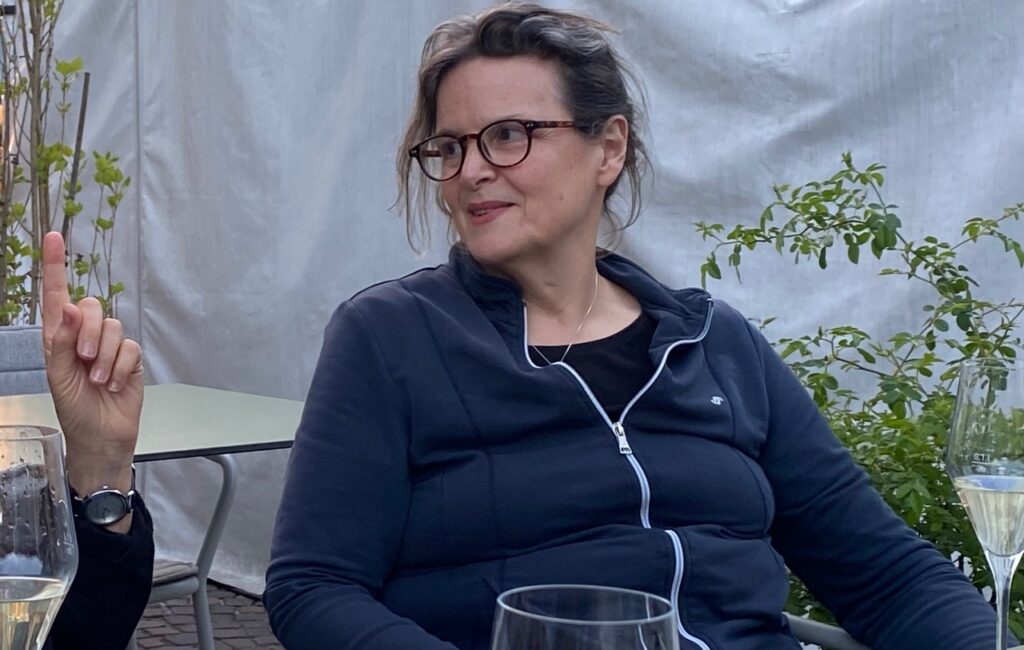Andrea Scrima (c) kunstGarten
Andrea Scrima is reading from KREISLÄUFE, the German edition of Like Lips, Like Skins,
Literaturverlag Droschl, Graz, Austria.
Published September 2021.
Translated by Christian von der Goltz and Andrea Scrima.
Andrea Scrima, born in New York City, studied fine arts in New York and Berlin, where she has lived as an author and visual artist since 1984. She writes essays for the Times Literary Supplement, Frankfurter Allgemeine Zeitung, Schreibheft, Music & Literature, The American Scholar, LitHub, The Millions, manuskripte, and The Brooklyn Rail, among others; is editor-in-chief of the literary journal StatORec; and publishes a regular column at Three Quarks Daily.
Scrima is the 2023/24 Writer-in-Residence of the city of Graz — Grazer Stadtschreiberin.
Like Lips, Like Skins tells the story of a young art student who leaves the East Village of the early 1980s for Europe a few years into the new decade. Crossing the continent to East Germany, Felice arrives in West Berlin, where she meets a young journalist in exile from the GDR. Deeply marked by his years in a juvenile detention facility, Micha struggles to function in what is for him a foreign political system. Thirteen years later, with Micha’s hold on reality slipping away, Felice returns to New York to mount an exhibition of her artwork and to visit her aging mother; haunted and unable to shake off the past, she finds her deceased father’s journals—the only existing record of the main events in the life of the family—and takes them back with her to Berlin.
Part Two of Like Lips, Like Skins picks up the story fifteen years later, after Felice finds the forgotten journals at the bottom of a box of unpacked books. This turning point in the book also marks a shift in language: the journal entries become its narrative backbone. Full of scrupulously recorded lists and everyday details interspersed with world political events, there is an obsessive, sad, sometimes absurd quality to her father’s calendar entries. As Felice traces the familiar loops and curves of her father’s handwriting and sets about decoding his idiosyncratic shorthand, she searches this laconic chronicle of family occurrences and day-to-day events for clues to her own troubled past.
Musical intervention: Josef Fürpass (bandoneon)
Josef Fürpass
born in Feldbach, bandoneonist since 1992 with various ensembles (Quinteteo Tango, La Revancha, Los del Abasto, Melancolibris, Los Mugrónes, Monika Holzmann Trio). Performances in Austria (Graz and Vienna Orpheum, Metropol Vienna, Vienna Chamber Opera, Schauspielhaus Graz, Brucknerhaus Linz, theatre in Heiligenstadt etc.), Italy (Teatro Baretti, Turin), Germany, Switzerland and on the Rio de la Plata (Montevideo, Buenos Aires). Visual artist and teacher at the Ortweinschule Graz.
INFORMATION
- Please make reservations not later than 2 hours before the programme begins: kunstGarten@mur.at or +43 316 262787
- Price

